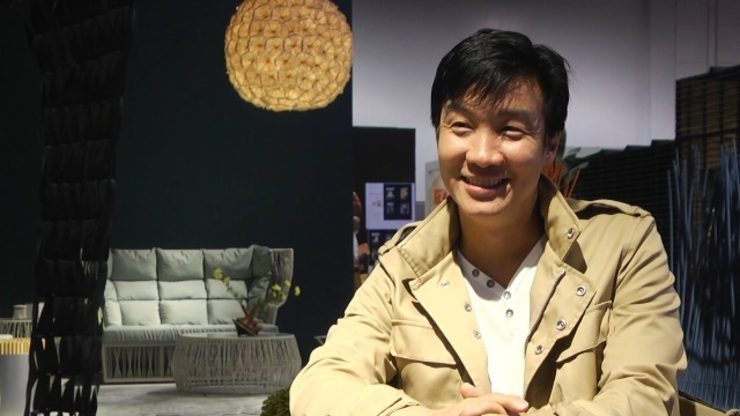SUMMARY
This is AI generated summarization, which may have errors. For context, always refer to the full article.

MANILA, Philippines – Internationally-renowned designer and Maison & Objet’s first Asian Designer of the Year honoree Kenneth Cobonpue urged the government, specifically the Bureau of Customs (BOC), to support policies that would ease operations in the manufacturing sector.
Cobonpue helped put the global spotlight on Filipino craftsmanship through his distinct furniture crafted from bamboo, rattan, and abaca – materials native to the Philippines.
Cobonpue lamented that securing an Importer Clearance Certificate (ICC) has been difficult, with some applications pending since March this year. “Some of us have applied since March, but none of us have gotten this license. … In order to import, there are now bogus companies who offer their import license,” Cobonpue, CEO and creative director of Interior Crafts of the Islands, Inc. said during the economic briefing, “Philippines: Shaping our Future,” on Tuesday, September 30.
All brokers and importers who would like to bring in goods to the Philippines must be accredited with the BOC. The ICC (or Broker Clearance Certificate) shall then be presented to the BOC-Account Management Office as part of the requirements for the BOC accreditation. This constitutes the second or final phase of the accreditation process.
The new process of accreditation was mandated by the Department of Finance through two Department Orders: DO No. 12-2014 released on February 6, 2014 and DO 18-2014 issued on February 26, 2014. There were 14,995 importers and brokers registered with the BOC’s Client Profile Registration System (CPRS) before the July 31 deadline. In August this year, only 63% of them applied for ICCs.
“We support the government’s anti-corruption efforts. But before we enact new laws and regulations, concerned government agencies [should be] prepared to implement them,” Cobonpue said.
Bring costs down
Cobonpue also asked the government to make doing business in the Philippines more attractive to manufacturers.
“To keep the manufacturing growth sustainable, we need to bring the costs down. Our materials are very expensive like stainless steel and aluminum,” Cobonpue said.
Shipping costs are also prohibitive for a local manufacturer. Cobonpue said that shipping goods from Cebu to Manila costs about $700, the same cost when shipping to Singapore via Hong Kong.
Manufacturing is still regarded as a key growth driver of the Philippine economy. In the second quarter of 2013, it accounted for half of the country’s gross domestic product.
In 2012, the Asian Development Bank cited the Philippines’ manufacturing sector as a promoter of inclusive growth, and urged the government to rethink its reliance on the business process outsourcing industry and remittances, as both do not provide higher paying jobs to reduce poverty.
To improve competitiveness, Department of Trade and Industry (DTI) Undersecretary Adrian Cristobal Jr said the department is crafting a roadmap for the manufacturing sector, comprised of 3.2 million workforce this year.
In the same briefing, National Economic and Development Authority Director-General Arsenio Balisacan said that job readiness in the manufacturing and tourism fields should not be a concern, as they do not necessarily require high skills. – Mick Basa/Rappler.com
Add a comment
How does this make you feel?
There are no comments yet. Add your comment to start the conversation.